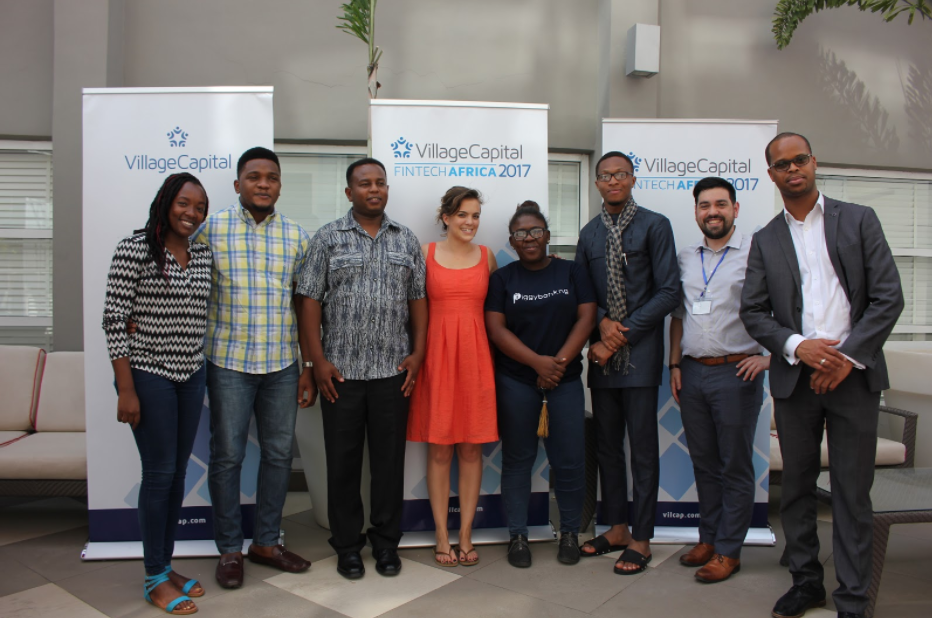Village Capital has announced the 23 early-stage startups selected to take part in Future of Work Africa 2021, an accelerator for startups that are working to help young people find jobs, build careers, and prepare for the future of work.
Since 2009, Village Capital has supported more than 1,000 early-stage entrepreneurs through its investment readiness programme, while the VilCap Investments fund has invested in more than 110 programme graduates.
Its latest programme, launched in partnership with IFC, a member of the World Bank Group, and Moody’s Foundation, and reported by Disrupt Africa in December, is Future of Work Africa, an accelerator for startups that are working to address high levels of unemployment across the continent.
A total of 23 companies have been selected to participate in the programme as part of two cohorts in May through August 2021. The top two peer-selected companies in each cohort will receive US$20,000 in capital to help scale their businesses.
These are the 23 startups selected to take part in the programme:
- ACE Smart Technologies (Zambia) provides equal access to education through technology to more than 35,000 students in Zambia.
- Afrilearn (Nigeria) is an education technology company that improves access to education by leveraging seasoned teachers, animators, and developers to deliver affordable and world-class education.
- Angaza Elimu (Kenya) is an edtech company that uses AI for on-demand quality and relevant education delivery.
- BeSingularity Sales tech Solution Plc (Ethiopia) is a sales recruitment, training, and deployment provider.
- CoffeeChat (Mauritius) is a coaching-as-a-service platform that enables companies to offer one-on-one executive coaching for their managers across Africa.
- Drivers Nigeria (Nigeria) is Africa’s first digital driver’s platform focused on providing and connecting vetted trained professional drivers to employers and vehicle owners on-demand and in real time.
- Ecomake Innovations (Ghana) provides practical engineering skills training and hands-on STEM skills to students for employment.
- Emploi (Kenya) is a smart talent sourcing and management platform that uses predictive analytics to score and match job seekers to roles.
- Eneza Education (Côte d’Ivoire) is an edtech company that provides curriculum aligned revision material in all subjects for primary and secondary learners on any device.
- Fundi App (Tanzania) uses mobile technologies to connect vetted and background-checked handymen operating in the informal sector with decent work opportunities.
- Gradely (Nigeria) is a personalised learning platform that empowers schools and parents to significantly improve student learning outcomes.
- ICT for Development Kenya (Kenya) trains rural youth in Kenya on IT skills for job creation.
- Irawo (Benin) is a digital community that provides tools, resources, and education to help young Africans unlock their highest potential and monetize their unique skills.
- Mosabi (Sierra Leone) links fintech and edtech with embedded, gamified upskilling for Africa’s financial products and platforms that helps advance financial health and inclusion for the continent’s grassroots entrepreneurs and MSMEs.
- Prim-U (South Africa) is a beauty & wellness platform that connects professional service providers and suppliers with customers to provide salon experiences on demand.
- Stars From All Nations (Ghana) is an education company that unlocks the potential of African youth through an immersive career accelerator program called ReadyForWork.Africa.
- TERAWORK.COM LIMITED (Nigeria) is a one-stop freelance marketplace helping African talent earn income globally through freelancing.
- Tustawi Professional Education Ltd.(Kenya) is the first sector-specific e-learning specialist for professional development in Kenya, using technology to develop job-specific and market-relevant customised training.
- Urbansense (SouthAfrica) is an on demand service app that connects local vetted service providers with customers, regardless of complexity of the job.
- Utiva (Nigeria) is a technology startup that makes it easy for Africans to access premium technology skills through a collaborative and remote learning model and makes talent and skills visible to employers.
- Wootlab Foundation (Nigeria) is a software development and talent management platform focused on creating employment opportunities for the unemployed and underemployed youth through technical upskilling.
- WorkNasi Plus (Tanzania) is a platform empowering businesses in Africa by connecting them to the best-skilled freelancers and remote workers from across the continent.
- Yu’sure (Zimbabwe) is a mobile-first insurance solution, connecting established insurance providers with unemployed youth creating a decentralised channel for insurance product distribution.
Each startup selected for the accelerator will have the opportunity to work closely with industry experts, investors, and ecosystem partners to develop the networks they need to scale their impact. All startups in the programme will also be invited to join Abaca, Village Capital’s global online network that helps entrepreneurs analyse and structure their businesses for investment. The network also matches them with the right investors and resources.
“Africa’s workforce is projected to be the largest in the world in the coming decades, with hundreds of millions of people below the age of 25 starting to seek employment,” said Adedana Ashebir, Village Capital’s regional director for Africa and the Middle East. “But there is simply not enough quality and quantity of jobs for this young and growing population. Village Capital is excited to support these 23 startups helping young people in Sub-Saharan Africa better prepare for and manage the future of work.”


